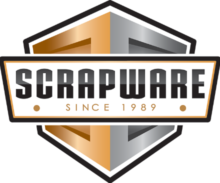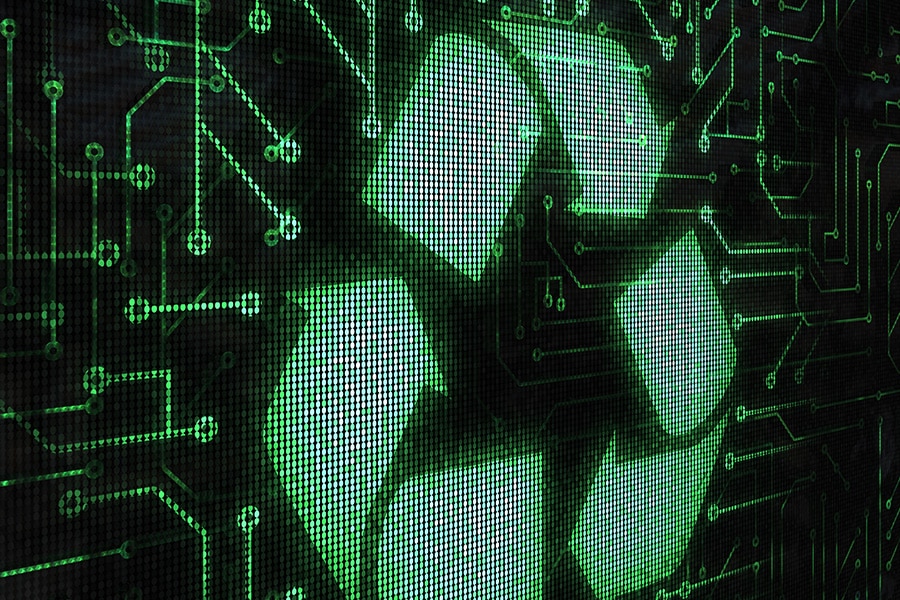Artificial intelligence (AI) is being developed and deployed to tackle some of the biggest challenges facing the world today.
In the United States, entrepreneurs, researchers and recyclers are pursuing efforts using AI in emerging technology to improve a vexing recycling problem—how to make consumer electronics recycling safe and affordable.
Electronic waste is becoming one of the most pressing global environmental issues.
As consumers increase use of electronic devices, more discarded electronics are finding their way into the waste stream. This presents a problem because these items are very difficult to recycle and are unsafe to put in landfills. Electronic devices are made of valuable material that could be reused except that they are extremely difficult to disassemble and separate. Improperly landfilling the devices contaminates the air and waterways because most electronics are comprised of toxic substances.
Recyclers have made strides with innovations to reclaim the recyclable material with robots that can safely break open and separate electronics, but these efforts are not yet widely used across the country. Pursuing efforts to use more AI to recycle e-waste might be a game changer. The Wall Street Journal reported last month one U.S. tech start-up is doing just that. Massachusetts-based Phuc Labs has developed a process they call “Vision Valve” using AI to recycle electronic waste more efficiently.
The concept behind Vision Valve is to put e-waste in a stream of liquid and separate contaminants out particle by particle. This starts like other recycling processes, chopping up debris from crushed discarded electronics. From there, Phuc Labs suspends the particles in water and sends it down tiny tubes. A camera captures its passage through the system at 100 frames per second. Once photographed, a computer trained to identify the particles analyzes each frame and directs the particles accordingly until all the valuable particles have been separated out.
“We digitally filter electronic waste streams particle by particle,” states the company’s website. It describes Vision Valve as a “hydrobotics system that automates the process of identifying, separating, and reclaiming particles from water,” intelligently sorting “limitless variations of target particles within e-waste streams.” According to the Journal report, filtration of this nature would be impossible without AI machine vision systems. This type of AI is actually already widely used in the facial recognition on smart phones and autonomous driving systems, among other applications.
Most existing e-waste recycling processes have limitations, according to Phuc Labs. They rely on analog separation versus the digital separation of Vision Valve. This means that they can not sort multiple target particles, they are limited in their functionality, are built for a specific purpose, and can not be used for other types of e-waste. One example of this would be the recycling robots Apple developed to recycle their cell phones. The development was a significant step in the right direction, but can currently only be used on iPhones, not on other smart phones or different electronic devices.
Other projects using AI machine learning to apply to various electronic devices are underway.
According to the technology website, The Verge, the U.S. Dept. of Energy in December awarded a grant to researchers from the University of Buffalo, Iowa State University and the Idaho National Laboratory together with Sunnking, an e-waste recycler. The goal of the research project is to develop software allowing robots to identify different types of smartphones in the waste stream, remove their batteries, and extract the various valuable components. The software should be able to allow the robots to identify the phones and look up the phones’ internal anatomy. The end goal according to researchers will be to have a smartphone-stripping robot that can be inserted into any e-waste recycling operation. Researchers will also evaluate whether the cost of the robotic process actually reduces recycling costs, with the hope of improving materials recovery by at least 10 percent and recycling economics by 15 percent compared with operations available today.
AI advances in other fields will help refine its capabilities as well.
In the medical field for instance, researchers are using AI machine-vision technology to sort cells, transforming cell therapies and drug discovery. The advances made in the life sciences and medical fields will improve the overall advancement of AI technology. As companies, researchers and municipalities continue to deal with e-waste, we can expect more innovation using AI to try to make e-waste recycling efforts safe and affordable. As the Phuc Labs website states: “When waste has value and can be reclaimed efficiently, sustainability becomes sustainable.”
About ScrapWare Corporation: Since 1989, Rockville, Maryland-based ScrapWare Corporation has been the software of choice for the recycling industry. Its ease of installation and simplicity saves users time and money, while helping them achieve compliance and maintain accurate business insights. With state-of-the-art functionality that‘s tailored to each organization’s unique requirements, ScrapWare is an advanced dynamic software solution that alleviates the most pressing recycling industry worries. For more information, please call (301) 517-8500 or visit https://www.scrapware.com/.

